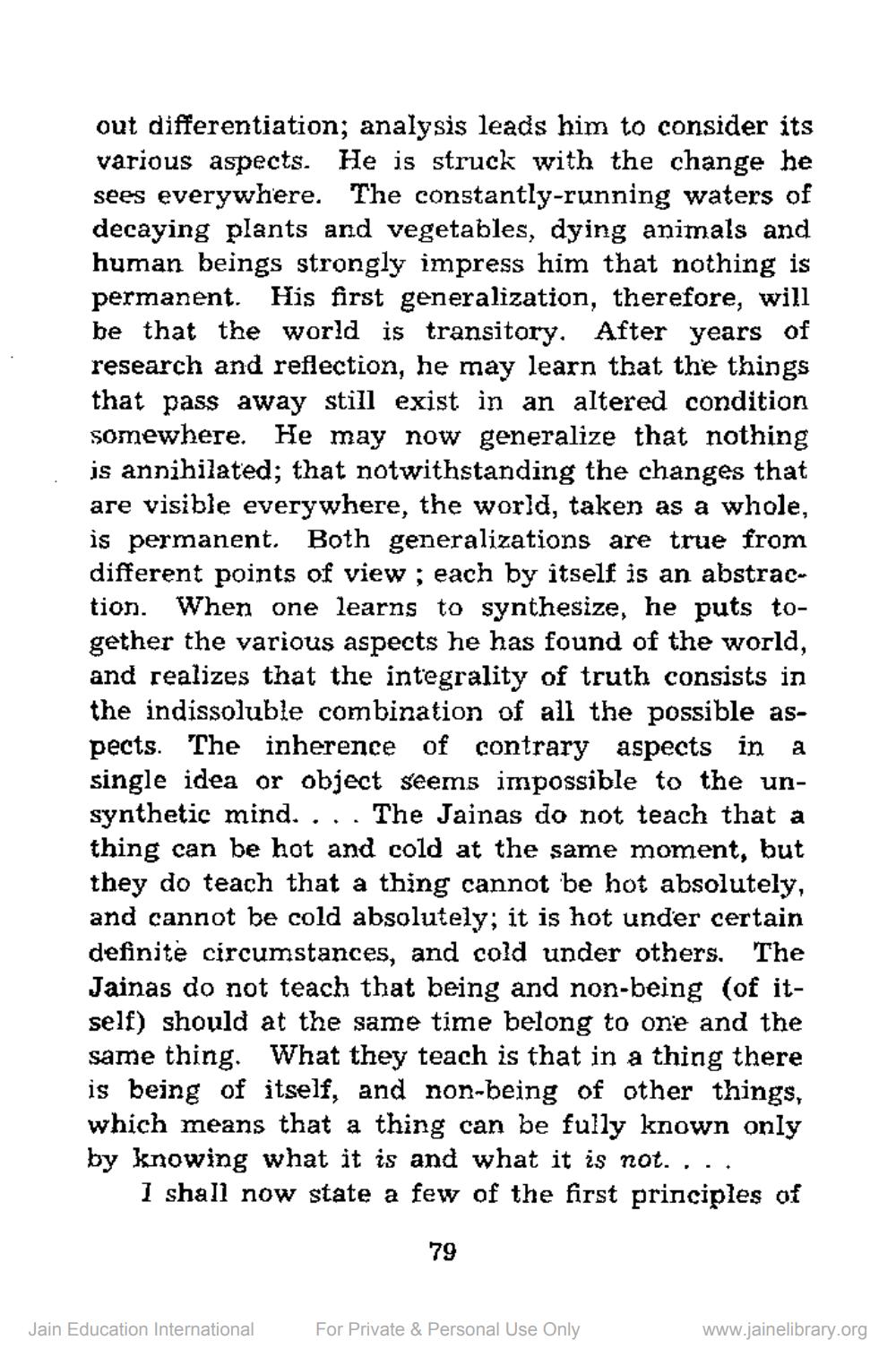Book Title: Contribution of Jainism to Philosophy Author(s): Virchand R Gandhi Publisher: Z_Selected_Speeches_of_V_R_Gandhi_002018.pdf View full book textPage 6
________________ out differentiation; analysis leads him to consider its various aspects. He is struck with the change he sees everywhere. The constantly-running waters of decaying plants and vegetables, dying animals and human beings strongly impress him that nothing is permanent. His first generalization, therefore, will be that the world is transitory. After years of research and reflection, he may learn that the things that pass away still exist in an altered condition somewhere. He may now generalize that nothing is annihilated; that notwithstanding the changes that are visible everywhere, the world, taken as a whole, is permanent. Both generalizations are true from different points of view; each by itself is an abstraction. When one learns to synthesize, he puts together the various aspects he has found of the world, and realizes that the integrality of truth consists in the indissoluble combination of all the possible aspects. The inherence of contrary aspects in a single idea or object seems impossible to the unsynthetic mind. . . . The Jainas do not teach that a thing can be hot and cold at the same moment, but they do teach that a thing cannot be hot absolutely, and cannot be cold absolutely; it is hot under certain definite circumstances, and cold under others. The Jainas do not teach that being and non-being (of itself) should at the same time belong to one and the same thing. What they teach is that in a thing there is being of itself, and non-being of other things, which means that a thing can be fully known only by knowing what it is and what it is not. I shall now state a few of the first principles of Jain Education International 79 For Private & Personal Use Only www.jainelibrary.orgPage Navigation
1 ... 4 5 6 7 8 9 10 11
